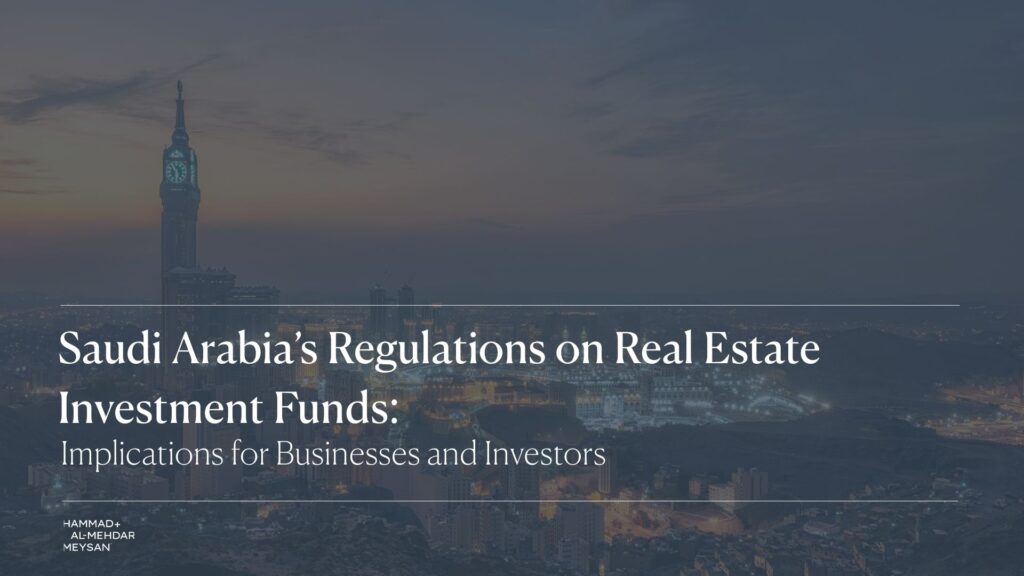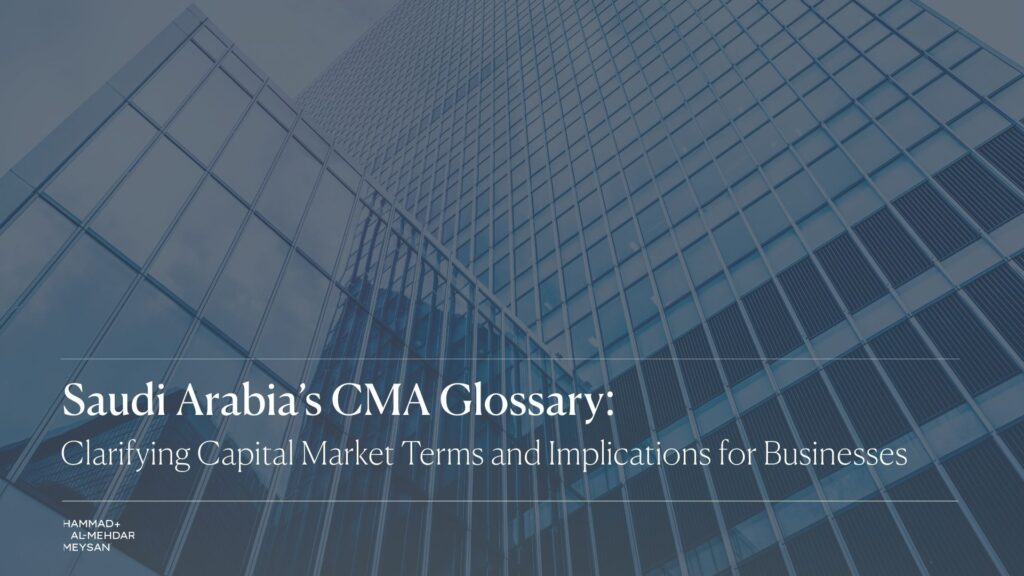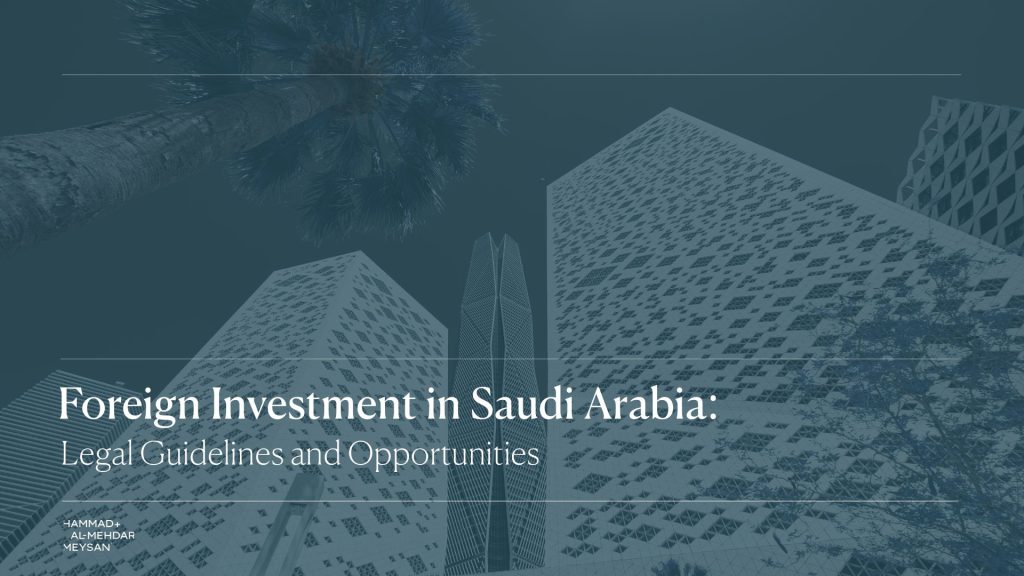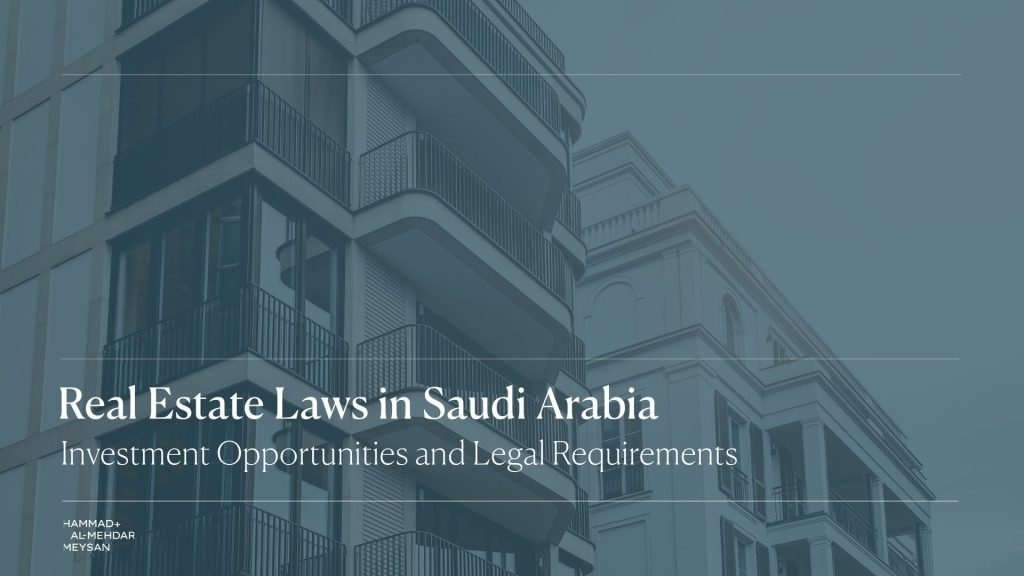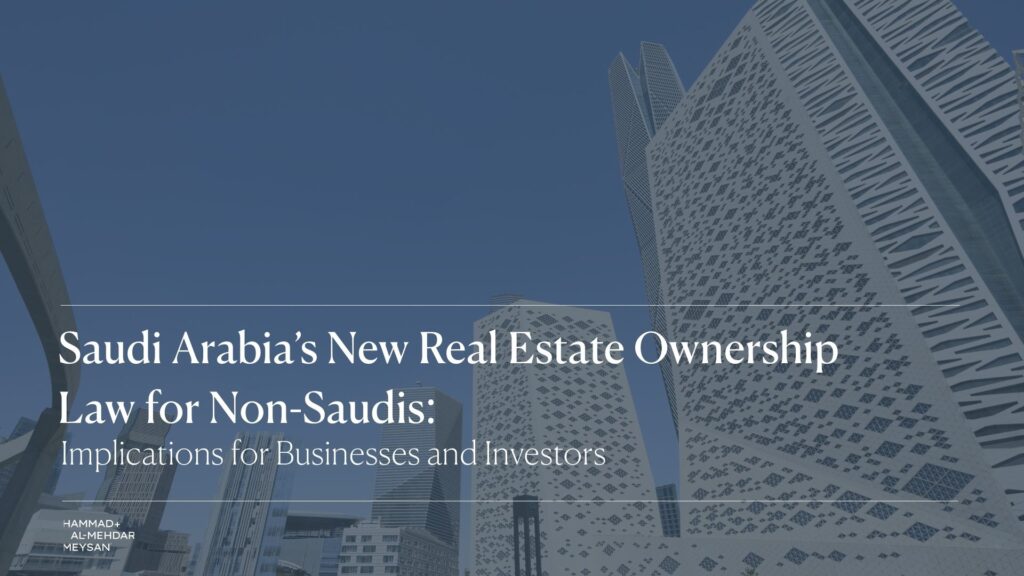
Saudi Arabia has introduced a landmark Real Estate Ownership Law for Non-Saudis, approved by Royal Decree M14 and published on 25 July 2025. This legislation represents a significant reform in the Kingdom’s property sector, opening new avenues for investment while maintaining regulatory oversight and strategic safeguards. The law allows non-Saudi individuals, companies, nonprofit organisations and other legal entities to acquire property in Saudi Arabia under a regulated framework. Its introduction aligns closely with Saudi Vision 2030, which seeks to diversify the economy, attract foreign investment and modernise urban development.
Overview of the Law
The new law replaces the previous framework that restricted foreign property ownership and imposed capital thresholds and purpose-related limitations. Non-Saudis can now acquire property in specific geographic zones determined by the government. Ownership may include full title or other property rights such as usufruct or easements, provided that transactions are properly registered with the Real Estate General Authority. The law clarifies procedures for registration, rights in rem, and fee structures while imposing compliance requirements that are intended to enhance transparency and legal certainty.
Special restrictions remain in place for the holy cities of Mecca and Madinah. Ownership in these locations is subject to stricter conditions, reflecting the Kingdom’s effort to balance investment liberalisation with cultural and religious considerations. The law is scheduled to come into effect approximately six months after publication, around January 2026.
Objectives and Policy Intent
The legislation serves multiple strategic objectives. Primarily, it seeks to attract foreign direct investment into the Saudi real estate market, thereby supporting economic diversification and stimulating activity in non-oil sectors. By widening the scope of eligible buyers and investors, the law also aims to increase the supply and quality of residential, commercial, and industrial properties.
Furthermore, the law provides a regulated and transparent mechanism for property ownership, thereby boosting investor confidence and reducing legal uncertainty. It is designed to encourage private sector participation, enhance urban planning, and support sustainable development goals. The broader intent is to create a modern, globally competitive real estate market that aligns with the Kingdom’s Vision 2030 objectives.
Implications for Businesses in Saudi Arabia
The new law has several implications for businesses operating domestically. Real estate developers stand to benefit from an expanded pool of potential buyers, including foreign individuals, corporations, and investment funds. This could increase demand for residential and commercial properties and enhance project valuations.
Construction companies, property management firms, brokerage agencies and related service providers can expect increased opportunities as demand rises for new developments, facility management and professional services related to registration and compliance. Real estate investment funds and financial institutions may also find new opportunities to create investment vehicles or expand portfolios that include foreign-owned properties.
Employers and multinational corporations will have more flexibility to acquire office premises, logistics hubs and operational facilities. This supports long-term planning for regional headquarters and business operations while simplifying leasing and rental arrangements.
Implications for Foreign Investors and Global Businesses
For international investors, the law transforms Saudi real estate into a regulated and accessible asset class. Foreign individuals and institutional investors can acquire property with legal certainty, creating opportunities for portfolio diversification, real estate development partnerships, and long-term investment.
Multinational companies will benefit from the ability to own premises for operations, reducing reliance on leasing and improving cost predictability. Additionally, foreign participation can stimulate cross-border capital flows and increase the attractiveness of Saudi Arabia as a destination for expatriate talent and international investors.
However, investors must be mindful of geographic restrictions, especially in Mecca and Madinah, as well as compliance requirements related to registration, title deeds and fee structures. Understanding these rules will be essential to mitigate risk and optimise investment outcomes.
Considerations and Risks
While the law provides significant opportunities, businesses and investors must approach the market with careful planning. Implementation details, including the designation of geographic zones and precise regulatory requirements, will only be clarified in forthcoming regulations.
Compliance obligations regarding property registration, ownership rights and associated fees require careful attention. Noncompliance could result in legal or financial penalties. Additionally, the opening of the market to foreign capital may drive demand and prices, creating potential affordability challenges and market volatility.
For sensitive locations, such as the holy cities, strict rules remain in place, and investors must ensure that acquisitions align with permitted zones and approved procedures. Monitoring the Real Estate General Authority and related official announcements will be critical for understanding practical operational requirements.
Saudi Arabia’s Real Estate Ownership Law for Non-Saudis represents a transformative step for the Kingdom’s property sector. By broadening eligibility, introducing transparency and regulatory clarity, and aligning with strategic economic objectives, the law creates substantial opportunities for domestic businesses, developers, investors and multinational corporations. The legislation is designed to attract foreign capital, encourage real estate development and integrate Saudi Arabia more closely into global investment markets. Success for businesses and investors will depend on understanding the regulatory framework, adhering to compliance requirements and strategically planning for participation in this newly accessible and regulated property market.

